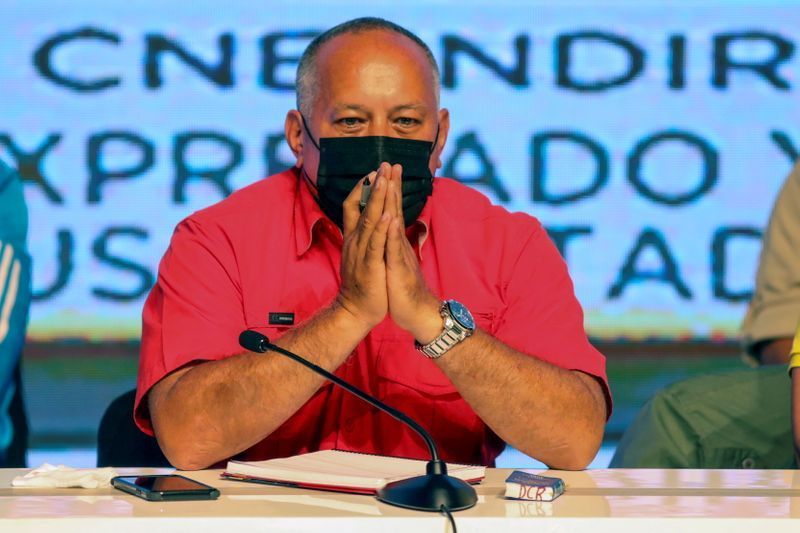CARACAS, (Reuters) – Allies of Venezuelan President Nicolas Maduro won a majority of votes in a parliamentary election that saw scant participation due to a boycott by the opposition, which said yesterday’s event was a farce meant to consolidate a dictatorship.
The elections council said that 67.6% of the 5.2 million votes cast in Sunday’s election went to an alliance of parties called the Great Patriotic Pole that backs Maduro – but that only 31% of eligible voters participated.
Voting centers were left barren in an embarrassment to the ruling Socialist Party, but the results nonetheless return congress to Maduro’s control despite an economy in tatters, an aggressive U.S. sanctions program, and a mass migration exodus.
“Venezuela already has a new national assembly,” Maduro said, in television remarks that were muted in comparison with his frequent triumphalism. “A great victory, without a doubt.”
Elections council chief Indira Alfonzo did not specify how many of the 277 seats would go to Maduro allies, based on the 82% of votes counted thus far. That was a departure from typical congressional poll-result announcements that usually break down the distribution of seats.
Alfonzo did name a handful of victorious candidates, however, including First Lady Cilia Flores and Diosdado Cabello, vice president of the Socialist Party.
She added that 17.95% of the votes went to parties who have described themselves as Maduro adversaries, but are widely suspected of being Maduro’s shadow allies.
Earlier in the year, the supreme court had put several opposition parties in the hands of politicians expelled from those same parties for alleged links to Maduro – one of the major reasons the opposition had called the vote a sham.
The elections council was also named without the opposition’s participation, and Maduro had refused to allow meaningful electoral observation.
“After the blackmail, the kidnapping of parties, censorship, fabrication of results, sowing terror, they announce what we have been saying – a fraud with 30%,” opposition leader Juan Guaido, the head of the current congress, wrote on Twitter.
The opposition in 2015 won congress in a landslide, but the pro-Maduro supreme court blocked even the most basic legislation. In 2017, Maduro supplanted parliament with the creation of an all-powerful body known as the National Constituent Assembly.
Opposition legislators nonetheless used the platform to denounce Maduro around the world for human rights abuses, corruption, and economic mismanagement, proving a constant thorn in the side of the Socialist Party.
Retaking control of congress will give Maduro few meaningful tools to restart an economy where a monthly salary or pension is often less than the cost of a kilo of meat or a carton of eggs.
It may lend his government more legitimacy to offer oil industry deals to companies willing to risk U.S. sanctions to tap the OPEC nation’s huge oil reserves.
But even traditional allies such as Russia and China, typically the most likely to challenge U.S. sanctions, have shown scant interest in an oil industry hollowed out by years of decay and the emigration of its most talented professionals.
The United States and many Western nations are refusing to recognize Sunday’s vote.
“What’s happening today is a fraud and a sham, not an election,” U.S. Secretary of State Mike Pompeo wrote on Twitter.
The opposition is calling on sympathizers to participate in a Dec. 12 consultation that will ask citizens whether they reject the results and want a change of government.
Guaido has been recognized by more than 50 countries including the United States as Venezuela’s legitimate interim president, after most Western nations disavowed Maduro’s 2018 re-election as fraudulent.






